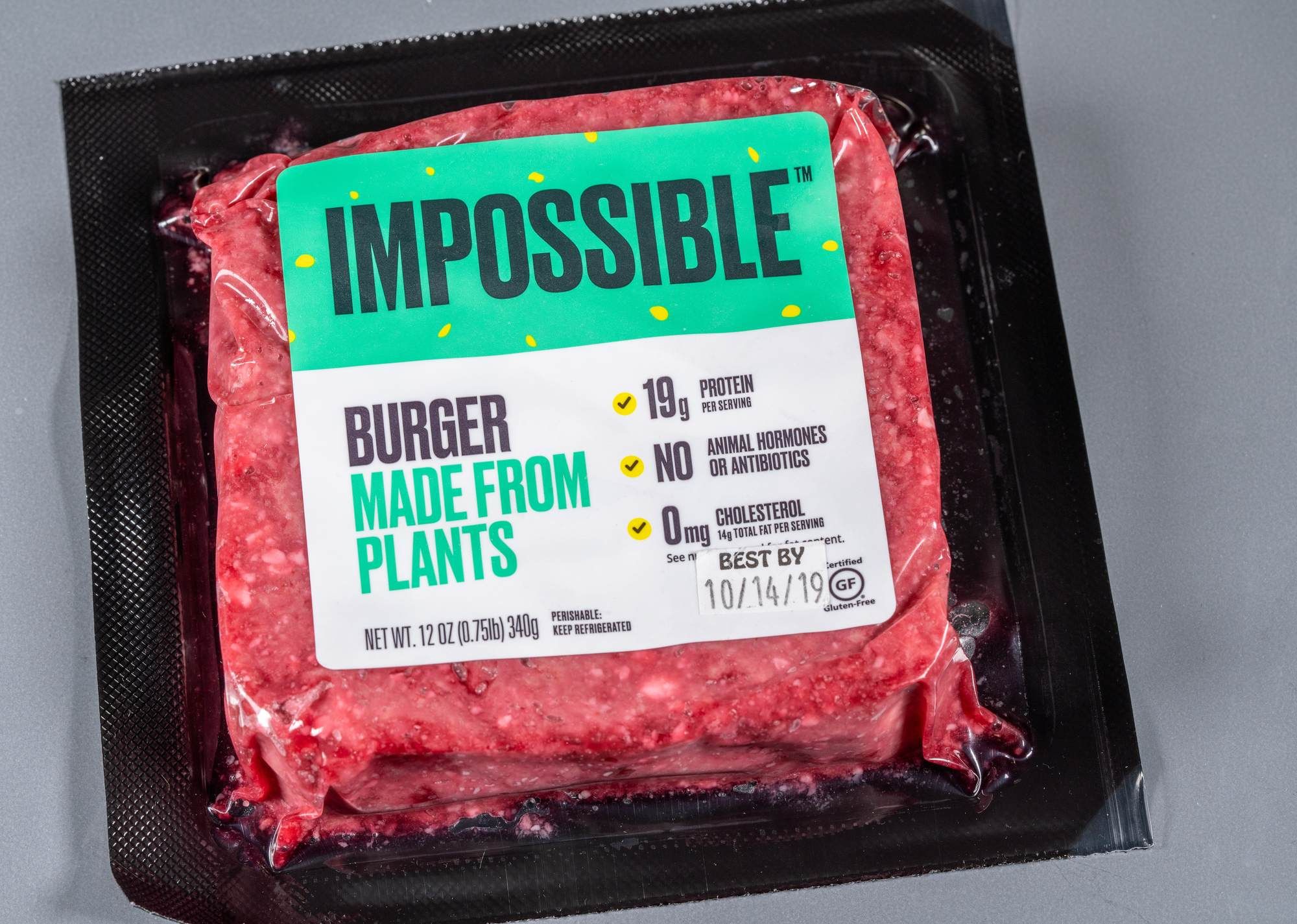Top Class Actions’s website and social media posts use affiliate links. If you make a purchase using such links, we may receive a commission, but it will not result in any additional charges to you. Please review our Affiliate Link Disclosure for more information.

The Impossible Burger was approved for sale too fast with a key ingredient that hasn’t faced enough scrutiny to prove it’s OK to eat, a federal agency in charge of food safety claims.
The Center for Food Safety (CFS) is filing a lawsuit against the Food and Drug Administration (FDA) alleging its approval of the popular product was premature and failed to meet safety testing standards.
This “dereliction of duty highlights a troubling deregulatory trend which prioritizes corporate profit over public health and safety,” a CFS release stated.
The Impossible Burger started appearing on menus and store shelves in 2019 and has been heralded as a convincing meat substitute partly because of a unique ingredient that allows it to “bleed.”
That ingredient, known as soy leghemoglobin, or “heme,” is a genetically engineered yeast that has never been used in foods before, the CFS claims in its latest brief.
Regulators with CFS report a “troubling” study done on rats showing heme disrupted reproductive cycles, reduced clotting ability, caused kidney problems and triggered the development of anemia.
The FDA initially refused approval of heme in Impossible Burger meat in 2015 because of these issues, according to GMO Science. Impossible Burger came back in 2017 with studies that were “statistically weak,” GMO Science reports.
“Enthusiasm for meatless products cannot be used as an excuse to skirt food safety laws,” the CFS said.
Heme is modeled after a soybean protein found in the plant’s roots, but also holds more than a dozen other yeast proteins.
The CFS argues heme is used in Impossible Burgers only as a color additive and because of that must pass a higher standard when it comes to food safety.
Because heme only offers aesthetic benefits, the FDA’s “convincing evidence” standard means heme must pass tougher scrutiny to be deemed safe to eat, the CFS claims.
“FDA’s failure to require Impossible Foods to conduct long-term tests … means it does not have ‘convincing evidence’ that this color additive, consumed by millions, is safe,” said CFS attorney Ryan Talbott. “The approval of soy leghemoglobin must be revoked, unless and until truly convincing evidence proves it to be safe.”
Do you eat Impossible Burger products? What do you think of the safety claims surrounding heme? Let us know in the comments below.
Counsel representing the CFE in this lawsuit are Ryan D. Talbott and Sylvia Shih-Yau Wu of the Center for Food Safety.
The Impossible Burger Lawsuit is Center For Food Safety v. U.S. Food And Drug Administration, et al., Case No. 20-70747 in the Ninth Circuit Court of Appeals.
Read About More Class Action Lawsuits & Class Action Settlements:















301 thoughts onImpossible Burger Not Tested Enough, Food Safety Regulator Says
Add me please
Thought it was healthy and approved I eat it all the time
I get severely ill anytime I’ve had impossible foods. The entire time I thought non cleanliness of the establishment. Would love to be added
Add me please